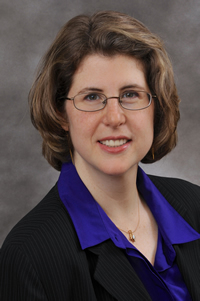Find a CBT Therapist
Search through our directory of local clinicians.
Tamar Gordon

Featured Therapist Interview
Dr. Tamar Gordon is the founder and clinical director of Tamar Gordon Psychology, PLLC; The Gordon Therapy Group. Dr. Gordon is a NYS-licensed clinical psychologist who provides evidence-based mental health treatment for adults and children. Dr. Gordon received her MA and PhD in clinical psychology from St. John’s University in 2005, completing a dissertation on the emotional effects of corporal punishment on children. She received her B.A. in psychology from Harvard University, graduating with honors, and spent two years working at the National Institute of Mental Health (NIMH) studying seasonal depression. Dr. Gordon completed her two-year post-doctoral fellowship training at the NYU Child Study Center in 2006.
Dr. Gordon has served as an adjunct faculty member at both Ferkauf Graduate School of Psychology and Columbia University Teacher’s College, teaching CBT to graduate students in clinical psychology. She has been a supervisor at a community mental health clinic, an expert consultant on trauma treatment to the United States Veteran’s Association, and is an active member of the Association for Behavioral and Cognitive Therapies, the International OCD Foundation, and the Anxiety Disorders Association of America. She is passionate about helping people find healthy ways to experience emotions while living a valued life.
Dr. Gordon’s group practice on the Upper West Side of New York City focuses on treating anxiety disorders of all types, and in all age groups, with some psychologists focusing on the youngest kiddos, and others working with older age groups. She herself works with people from ages 7 to 70. They provide individual treatment and parenting skills for a full range of problems, including OCD, ADHD, and Generalized Anxiety. You can read more details about each clinician at https://gordontherapygroup.com/staff-psychologists/
During the Covid-19 Pandemic, The Gordon Therapy Group is providing all services via tele-health. Please contact us at [email protected] or check us out at https://www.facebook.com/tamargordonpsychology
First, we would like to know a little about your practice.
What are your personal strengths as a practitioner?
I use humor a lot. I encourage people to see the beauty of their own humanity, the ways our strengths and weaknesses are often two sides of the same coin. A client I’ve known for a long time once told me that she can often hear laughter coming from my office when she’s waiting for her appointment, and she likes knowing that even if she is going to cry in session she will also probably get to laugh.
What “tips” can you offer to colleagues just opening a practice?
All it takes is a phone number, an office space, and a colleague to talk things over with sometimes. Don’t let fear stop you from moving forward.
How do you remind your patients of their strengths during the therapy process?
I try to help people see themselves through my eyes. I generally find that I am able to find something likeable and admirable in everyone. If I can see the good, so can you. I also admit to some of my own imperfections so that patients see they are not alone in their struggle to overcome fears and difficulties.
Are you involved in other types of professional activities in addition to your private practice?
I supervise at various graduate programs, bringing along new psychologists in their own CBT practice. I’m on the board of the Women’s Mental Health Consortium of New York, wmhcny.org, and I am active in the Anxiety Disorders Association of American and ABCT.
We would also like to know a little about you personally.
Who was your mentor?
Dr. Jeff Nevid at St. John’s University mentored my dissertation, and helped me think like a scientist. Dr. Ray Digiuseppe at St. John’s taught me REBT and the Albert Ellis approach. Dr. Marylene Cloitre was my post-doctoral mentor, and she taught me how to treat adult survivors of childhood abuse using a structured treatment that mixed the best of CBT, principles of Acceptance, Interpersonal Schemas, and Exposure Therapy that has influenced most of my treatment approach since. Her work also led me to learn to do child treatment so I could help kids grow into healthy adults.
When not practicing CBT, what do you do for fun?
I like to bake and to read novels, or better yet eat what I have baked while reading a novel!
We are also interested in some of your views of CBT.
What do you think is the single most important thing CBT can do for your clients?
Help them identify their own mood, thought, and behavior patterns so they can make conscious choices about their lives.
Where do you see the field of the behavioral therapies going over the next 3-5 years?
I think neuroscience will influence our work more and more. New developments are going to come from increased understanding of biology and neurology.
How do you use the local or social media to educate your community on the benefits of CBT?
Not as well as perhaps I should. But you can find some video of me on my Facebook or Instagram pages, https://www.facebook.com/tamargordonpsychology or https://www.instagram.com/gordontherapygroup
Finally, we would like to know your opinions about ABCT.
How long have you been a member of ABCT?
Since 2007.
How has ABCT helped you professionally?
It has helped me connect with other professionals and educate myself at the conference and on the list serve.
Thank you very much for taking the time to answer our questions!
